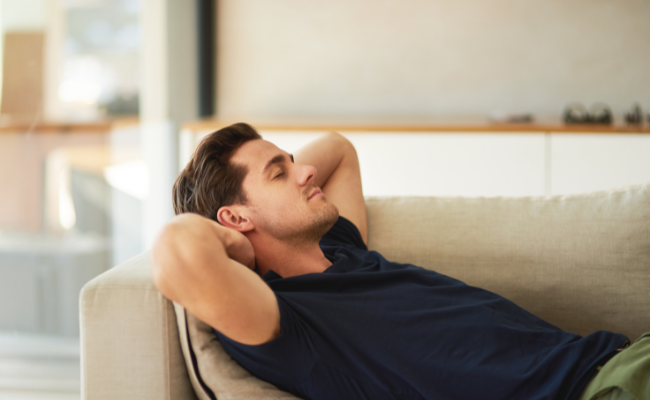Meet the Latest Cure for Daytime Sleepiness – Outperforms Caffeine
We’ve all been there, battling daytime energy slump. But for those struggling with obstructive sleep apnea (OSA), combatting daytime sleepiness isn’t just an occasional issue. It’s a continuous ordeal.
Experiencing excessive daytime sleepiness (EDS) isn’t as simple as having insufficient energy. It can cause affected individuals to sleep at inappropriate times, like while eating or driving.
Even using positive airway pressure (PAP) mask, OSA patients can’t entirely eliminate EDS.
Researchers have been vigorously seeking other treatments. Their primary goal? A feasible daytime sleepiness cure.
.@McMasterU researchers @DenaZera and @TylerSC10 have found that the drug solriamfetol is the most effective treatment for excessive daytime sleepiness caused by obstructive sleep apnea. #HamOnt https://t.co/e9hUUR2zfo
— McMaster Health Sciences (@machealthsci) May 18, 2023
Tyler Pitre, a resident physician in internal medicine at Canada’s McMaster University, said, “We encourage OSA patients to utilize their PAP machine. But if they continue to experience tiredness, there are promising medication options to reduce their fatigue.”
The Efficiency of Three Anti-Fatigue Medications
Pitre and his team of researchers analyzed 14 clinical samples. These involve more than 3,000 OSA patients suffering from EDS.
You may also like: How to Nap Without Ruining Your Sleep Schedule
They evaluated the comparative efficiency of three promising anti-fatigue medications – armodafinil-modafinil, solriamfetol, and pitolisant.
Impressively, all these three surpassed the drugs against EDS, ScienceAlert reported. In addition, a set of data from the 14 trials unveiled solriamfetol as the most effective daytime sleepiness cure.
The study, published in the Annals of Internal Medicine, showed a significant difference in resulting to wakefulness in drugs. Pitosilant and armodafinil-modafinil also showed great potential.
However, the proof was less solid. Moreover, the researchers noted a possible issue with solriamfetol and armodafinil-modafinil.
This resulted in a greater likelihood of patients discontinuing the latter. Despite the ramifications of comparing the results on multiple tests, solrimfetol stood out as the front-runner.
Its efficiency may be connected to more levels of dopamine and norepinephrine in the brain. However, the long-term use needs further study as there’s only a little proof of this.
Dena Zeraatkar, assistant anesthesia professor from McMaster University, said that these anti-fatigue drugs could possibly treat related conditions like long COVID and chronic fatigue syndrome.
However, insufficient understanding and complexity of these illnesses mean medications should focus on the underlying causes.
Next Steps in the Quest for Daytime Sleepiness Cure

You may also like: Sleeping in the Daytime Could Be Putting Your Heart in Danger
Moreover, comparing treatments is the first study done for this case. Despite possible side effects like blood pressure increase with solriamfetol use, the need for better medications for billions of people worldwide with OSA cannot be underestimated.
Pitre said, “Fifteen to 30 percent of people in North America are diagnosed with OSA, but the prevalence could be much higher, as many are undiagnosed.”
“This is especially significant given the correlation between obesity and OSA, a condition affecting an increasing number of people in Canada, the United States, and other high-income countries,” Pitre said.
The medical community is still cautious even with the new research showing the effectiveness of armodafinil-modafinil, solriamfetol, and pitolisant. But the study indeed offers hope for those with EDS and OSA conditions.
However, it is clear that further study is necessary, especially with the possible long-term effects. Yet, the team also emphasized the urgency for improved medications, more studies, and better knowledge of OSA and EDS.
Daytime sleepiness treatment
While the study is still ongoing for the potential medications for daytime sleepiness, here are some strategies you can try to alleviate EDS symptoms.
- Keep a regular sleep schedule.
- Fix your sleeping environment.
- Avoid watching or browsing before bed.
- Exercise regularly.
- Maintain a balanced diet.
- Limit your daytime naps.
- Seek professional help.
For more updates on the latest news, stay tuned at Inquirer.net.

